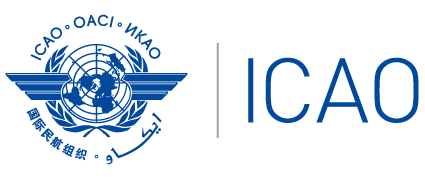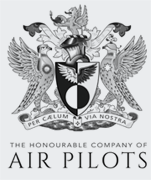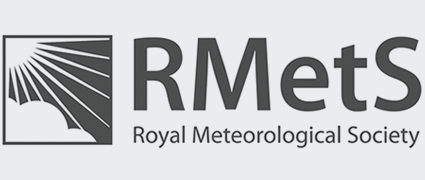Basic Training Schedule Development
Basic Training Schedule Development
Article Information
Category:
Content source:
Content control:
Last modified:
20.Jun.2022
Article UID:
Тraining development
Task analysis and training objectives
After having a preliminary study including job and population analysis, the development process starts with determining the training objectives. In accordance with the provisions of Regulation No 805/2011 laying down rules for ATCO licences the initial training shall ensure that student air traffic controllers satisfy at least the objectives for basic and rating training, as described in Eurocontrol’s ‘Specification for the ATCO Common Core Content (CCC) Initial Training’, edition 1 of 21 October 2008. The CCC objectives were originally developed after the major ATCO job disciplines had been task-analysed and, therefore, this aspect is not included in this article. Nonetheless, any local or future ATCO training development may need to consider repeating the whole process in order to include new, modified or updated tasks (objectives).
The EUROCONTROL document “Guidance for Developing ATCO Basic Training Plans Edition 2.0 provides information and guidance relating to the development and implementation of Air Traffic Controllers’ Basic Training. The document first describes the training methodology and documentation, then focuses on the expected outcome of the ATCO Basic Training (performance objectives) and finally offers an example of ATCO Basic Training Plan with the timing and prerequisites which may be very useful to designers of training programmes, as well as to instructors in theory and practice.
Planning and design
Planning is the most important phase in the training development and is the first step in the training design. Design involves all activities undertaken before the training is delivered. Planning and design may also include analyses of resources like:
- Budget and instructors (qualification and competence requirements);
- Learners and their motivation;
- Availability, variety and layout of training material;
- Technical and general support to training.
The requirements for the above listed training resources are considered to be specific for implementation locally and could not be defined as elements of an universal training plan. From the point of view of content development of the basic training plan an emphasis has to be put on their relation to:
- Training events that logically link training objectives;
- Scope, timing and sequence of the training events;
- The most appropriate training method or blend of methods for each training event;
- extended content and examples of appropriate training material (when available).
Delivery of training
Training delivery is a process when the learner interacts with the trainer and/or the training package in a training event.
An important principle (and constraint) of the interdependence between the training design and the delivery is that the training provider has the possibility to trade off resources allocated during these two phases. For example, if a provider has a high resource level for delivery (subject matter experts as instructors, plenty of instructional time, small groups of learners, and alternative training materials), they can spend less time on design. On the other hand, if a provider has extremely limited resources for the delivery of training (non-specialist instructors, tight learning schedule and large groups of learners), they need to allocate extra time and additional resources to the design process.
Feedback and evaluation
Feedback and evaluation of the effectiveness of the training are vital parts of the process and will ensure the link between the various stages of the training cycle enabling remedial actions in either the design or delivery phases. Feedback is the total sum of all the inputs gathered regarding the training, whereas evaluation is the assessment of these inputs.
Both feedback and evaluation may be done regularly during the training or after the completion of a training phase. Feedback can take various forms, including surveys, group discussions, confidential and/or formal assessments. Effective feedback should allow each learner to provide inputs on the quality of the training, instruction and instructors, managerial and organizational issues, relevance and format of the training material etc.
Instructors should provide regular feedback on managerial and organisational issues, relevance, content and structure of the training material.
Evaluation of the training process should not rely only on the pass rate achieved, but should take into account all the factors received during feedback.
Training Resources
When designing and implementing any of the phases of ATCO training and assessment, availability of resources should always be considered. The following sections list possible resources that may be used to aid development and implementation of training.
1. Human resources:
- Training managers, subject matter experts, practical training instructors, competence assessors, recruitment specialists, welfare, administrative and technical support staff etc.;
- Current operational experts including instructors.
2. Material resources:
- Premises with appropriate training infrastructure;
- Access to operational units (e.g. visits);
- Financial resources (e.g. training budget).
3. Training material resources (Media):
- Training documentation, maps, charts, etc.;
- E-learning programs, LMS;
- Questionnaires and examination question pools;
- Administrative and quality management documentation;
- Access to internal and external libraries.
4. Organisational resources:
- Organization of training based on European and national legislation and best practices;
- Recruitment process;
- Assessment process and documentation;
- Method and format of the assessment;
- Quality assurance process including learners and instructors feedback;
- established links with Human Resources Department and operational units (meetings/ interviews, improvement processes).
Training Documentation Structure
The ATCO training terminology has been developed by EUROCONTROL with the intention of creating a common language that European training organisations could use to communicate unambiguously their training activities. The EUROCONTROL training documentation provides an explanation of the training documentation structure that is built around four concepts: syllabus, training plan, training event plan and training assessment plan.
Objective Based Training Concept
A training objective is a description of what is expected of a learner after training. The description shall be accurate and measurable.
In EUROCONTROL training documentation, references to several categories of objectives can be found:
General objective (or goal): Describes the direction to move in rather than a detailed quantitative objective.
Objective: A clear statement based on a corpus, level and content.
Training Events Concept
Training objectives indicate what is expected from the learner. How to train a learner to achieve the objectives is indicated in the training plans through the choice of training events.
A training event is the delivery of training to achieve an objective or objectives that have been grouped together to form a pedagogically cohesive unit. Each training event has a main type assigned to it. The training event is more accurately described by reference to the training method/s, media, learning rate and mode of delivery.
The training plans assist in the preparation of training and to plan resources. However, their implementation requires of the instructor flexibility, interpretation capacity and a good sense of adaptation.
Related Articles
- Controller Training Methods and Tools
- Line Oriented Flight Training
- Technical Competencies
- Stress in Air Traffic Control
- Regulation 2015/340 - Technical Requirements and Administrative Procedures relating to Air Traffic Controllers' Licences
Further Reading
EASA
- Air Traffic Controlers' Licencisng and Certification, Technical requirements and administrative procedures related to Commission Regulation (EU) 2015/340 and AMC and GM to ATCO, August 2015
FAA
EUROCONTROL
- Human Factors Module: Learning Skills and Acquisition
- Specification for the ATCO Common Core Content Initial Training
- Integrated Task and Job Analysis of Air Traffic Controllers Phase 1: Development of Methods
- Integrated Task and Job Analysis of Air Traffic Controllers - Phase 2: Task Analysis of En-route Controllers
- Integrated Task and Job Analysis of Air Traffic Controllers - Phase 3: Baseline Reference of Air Traffic Controller Tasks and Cognitive Processes in the ECAC Area
Categories







